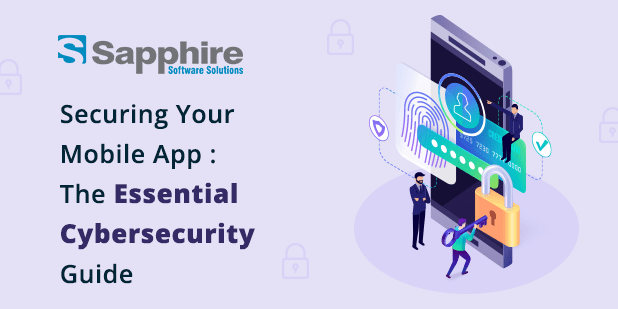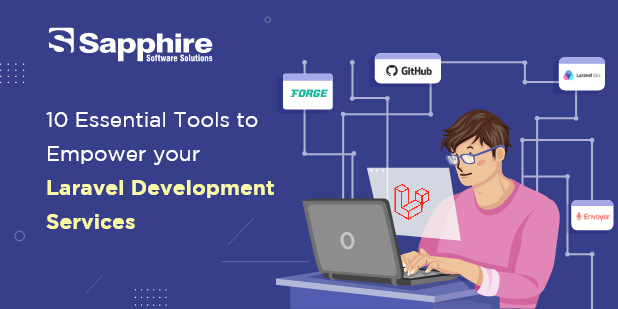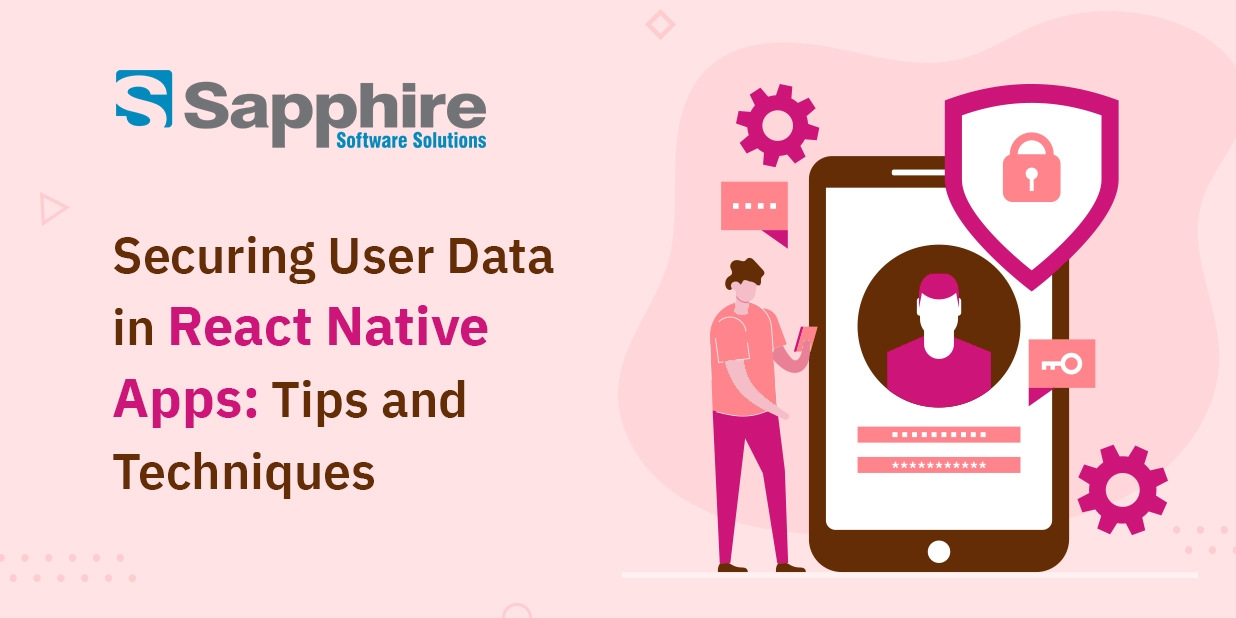Our lives now revolve around our mobile phones. Since most mobile users spend 90% of their time on mobile applications, organizations nowadays create applications with a mobile-first mentality. Consequently, addressing mobile app security and protecting critical user data has become more important.
Private and sensitive user data, such as banking or health information, is often a concern for mobile applications. Getting hacked or Losing data may have significant effects. There is no worse horror for a mobile app developer than discovering that his app was implicated in a significant data breach and user data theft.
Mobile app security vulnerabilities may harm a system as a whole. As a result, mobile app security is essential. Unfortunately, it is not easy to identify security concerns and establish the security level of a mobile application. However, mobile app developers must guarantee that users are safeguarded from outside incursions that might jeopardize a company’s reputation and the customers’ personal information.
Here, we’ll talk about how mobile application security works and how to protect your mobile applications. Before we go any further, should we first define mobile app security?
What is Mobile App Security?
Mobile app security is a technique designed to protect mobile applications against external threats like malware and other digital frauds that put users’ personal and financial information at risk from hackers. In today’s ever-evolving digital world, importance of Cybersecurity in Mobile App Development is crucial.
A compromise in mobile app security may allow hackers with real-time access to the user’s personal information, including financial information, personal information, and current location.
However, we seldom consider protecting mobile applications until a compromise has occurred. When this occurs, it may be too late to preserve all the personal information. Thus it is essential to consider security in advance.
Impact of Poor Mobile App Security
Before making their mobile applications available, users rely on and trust enterprises to evaluate them for security. To exploit security flaws in mobile applications, hackers may attempt to use any of the following:
Customer Information:
Hackers may get login credentials from any device or website, including email, banking, and social media sites. Anubis banking Trojan is a well-known example of this type; it infects a user’s device via downloading malicious applications, some of which are even housed in app stores.
Once a device has been compromised, the Trojan forces it to send and receive SMSes, seek permission to access the device location, read contact lists, allow push notifications, and identify the IP address of the mobile connection with access to personal data on the mobile device.
Financial Information:
Researchers at Kaspersky discovered a new variant of Ginp, a banking Trojan that may steal critical passwords and credit card information from a user’s device. Its ability to control the device’s SMS functionality enables malware to alter banking processes. Especially if a one-time password is optional, hackers may get debit and credit card information to conduct bank transactions.
Theft of intellectual property:
Hackers get the application’s source code to generate unlawful clones or steal the application’s owner’s intellectual property. Therefore, the more valuable or useful an app is, the greater the likelihood it will draw clones to app stores.
Despite this, several clones became well-known due to their immense popularity. For instance, PUBG and Fortnite gained popular yet were unavailable on Google Play. At one point, Google had to tell its customers that the official Fortnite game was unavailable on the Google Play Store.
Revenue Loss:
Access to premium features of applications is feasible, particularly in utility and gaming apps, which generate cash for app owners. In 2016, the mobile app security firm Bluebox disclosed how hackers might get access to the premium features of the popular applications Hulu and Tinder by exploiting security flaws and inflicting losses on the apps’ owners.
Brand Confidence:
In addition to the loss of crucial user data, other sources of loss include the exploitation of user information and litigation from impacted parties. The advantage of doing security drills is that consumers remain loyal and have faith in the company, but the disadvantage is permanently losing customers’ confidence.
Customers’ trust in a company’s brand should be recognized as the linchpin of any enterprise’s success. As a result, this quality of a mobile development business should be considered while creating an app.
Mobile App Security Best Practices
The best practices for mobile app security guarantee that the application is risk-free and does not disclose personal data or information. Before uploading a mobile application to a public app store, the developers must ensure that all security tests have been performed. Public-facing applications that are the sole communication channel between clients and the organization are the primary goals of hackers.
Most applications are created thinking they have to be compatible with practically every device accessible on the market. The mobile application is vulnerable to assaults and manipulation using this manner, however. Therefore, to avoid such assaults, mobile app developers must use the most rigorous filter methods feasible while creating mobile applications.
Risk Analysis:
Mobile app developers might undertake a threat-modeling exercise to limit particular alerts. The most typical hazards that firms that rely on mobile applications for running their company confront are as follows:
Data leaks:
Applications with porous firewalls are in continual danger of being infiltrated by hackers who may collect private information, such as payment credentials, system passwords, and PINs. Once the firewall is hacked, malware may be inserted into the device.
Infrastructure exposure:
Sharing resources, like a third-party API, may be required to connect mobile applications and the company’s back-end services. If the technique of API integration is not evaluated intelligently, it might jeopardize the user data that remains in the device and undermine server-level security.
Scams:
Any mobile application meant to execute financial transactions will constantly be under the radar of scammers. However, when an application uses sensitive data, such as payment credentials, PINs, and credit card passwords, there is always a danger. Always on the hunt are hackers armed with many attack strategies, such as SMS stealing through malware, script injection, and repackaging.
Regulations and guidelines:
Applications must function inside a legal and social framework, and breaking them might prompt legal action. In European countries, for instance, the General Data Protection Regulation and the Revised Payment Services Directive are in effect. In the global context, multiple rules apply concurrently.
Right Architecture
Architecture Analysis:
Consider whether the app is distributed via a retail store or the organization’s distribution channel. Private applications distributed by a carrier are less likely to be reverse-engineered—several methods for protecting applications, such as UEM and standalone solutions.
Mobile app architectures might be native, hybrid, or web-based. These undermine security or performance. Encrypting an organization’s cached data takes time and money, but converting a web application into a mobile app is easy.
Hackers often use applications and gadgets to circumvent security. Cache reduction and rejection to increase security may negatively impact the speed of mobile applications. Thus, architectural choices should be informed by these aspects. Device- or server-side inspections must be selected by mobile app developers.
Jailbreaks may imitate indigenous check mechanisms. The process of developing a mobile application may not be universal. For specific applications, device inspections may be more effective than server-side restrictions.
The creation of native applications unlocks all operating system security options. Both Android and iOS include best practices for developers. Since they utilize the OS API, their performance is enhanced.
Native ecosystems may satisfy both fundamental and complicated demands. These native environments provide the validation, encryption, device verification, and storage of credentials. Native application development needs two separate versions.
Native design is optimal for competitive applications, whereas hybrid designs may be preferable for others. The hybrid architecture is compatible with Xamarin and Flutter. Native mobile app security measures may protect critical hybrid app activities.
Mobile applications follow the most secure mobile app security architectural ideas. Developers must concentrate on essential factors to improve mobile applications. Experts recommend the following procedures:
Minimal Permissions for Applications:
Permissions provide applications the freedom and ability to operate more effectively. However, they simultaneously render programs susceptible to hacker assaults. No program should search for authorization requests outside of its scope of functionality. Instead of reusing their existing libraries, mobile app developers should build new ones that need authorization.
Protecting confidential information:
Without a suitable protection mechanism, confidential personal information inside the application is vulnerable to attack. To reduce the danger, the quantity of data kept on the device should be limited, if feasible. In addition, miscreants may obtain important data by reverse-engineering software.
Certificate Pinning:
Certificate pinning is a process that assists applications in protecting themselves against assaults while connected to unprotected networks. However, the procedure has its limits. For example, it may not enable network detection and response tools in a few circumstances since traffic inspection is more complicated.
Additionally, compatibility concerns might arise. Specific browsers do not support certificate pinning, making it more difficult for hybrid applications to run.
Strengthen Data Security:
Users should be aware of data security policies and rules to prevent falling for hackers’ ploys. For instance, deploy firewalls, mobile app security technologies, and well-implemented data encryption when information is sent between devices. You may refer to the recommendations for iOS and Android development platforms.
Use Authorized APIs Only:
Developers often rely on APIs since they simplify their work. However, APIs may also be susceptible to external attacks. For best security, it is suggested that APIs be centrally approved. Uncertified and insecurely-coded APIs might accidentally provide access to hackers. For best security, ensure that your APIs are approved centrally.
Not Saving Passwords:
Numerous applications require that passwords be saved to prevent users from frequently entering login credentials. However, these passwords might be acquired to access personal information in mobile theft. Similarly, if the password is stored unencrypted, the likelihood of it being harvested is relatively high.
Passwords shouldn’t be saved on devices, since this may be avoided by mobile app developers. Instead, they should be kept on the app server so that affected users may still edit them even if they misplace their mobile device by logging onto the server.
Implement Session Logout:
It is commonly recognized that people forget to log out from the website or program they have been using. This might be problematic if it is a banking application or any other payment app. Consequently, payment applications will likely terminate a user’s session after a specific time of inactivity.
Therefore, developers must integrate a session logout on all consumer-centric and eCommerce applications, even if they anticipate highly savvy consumers.
Consult security professionals:
Regardless of the expertise and understanding of an internal security team, an outsider’s view on the applications may provide a unique perspective. Several mobile app development businesses and applications may be used to identify vulnerabilities and limit the likelihood of being hacked.
Moreover, mobile app development firms should encourage their development teams to have the security elements of their applications audited by third-party service providers.
Avoid using personal electronic devices:
Many businesses urge their staff to bring their laptops or mobile devices for mobile application development to save the costs associated with purchasing equipment. However, it may expose the network to diseases gathered on an employee’s device.
This is how Malware and Trojans spread from one device to the next. Each device connected to an office network, for instance, should be inspected thoroughly with a firewall, antivirus, and anti-spam application, or it should not be allowed to interact at all. A mobile app security checklist and policy are thus essential to prevent such abuses.
Utilize Third-Party Libraries Cautiously:
Using third-party libraries may reduce the amount of code written by the developer and simplify the process of creating mobile applications. However, it might be a dangerous endeavor. For instance, the GNU C library has a security hole that permits buffer overflow, which hackers could use to execute malicious code and crash a device remotely.
It lingered for eight years until the GNU Project’s open-source contributors issued a remedy in 2016. To defend applications against assaults, app developers should restrict library use and set library management rules.
Limit User Privileges:
The more rights granted to a user, the greater the likelihood that the app’s security would be compromised. For instance, if a user with many rights is compromised, hackers might do unfathomable harm to the program. Similarly, an app should not request device capabilities for tasks it does not need, such as access to the DCIM folder, SMS reading, etc.
Employ The Rule Of Least Privilege:
The concept of least privilege is a mobile app security guideline or philosophy stipulating that code should only execute with the rights it needs. This approach applies to all facets of the IT sector, including the end-user, systems, processes, networks, and applications.
For instance, an app shouldn’t need access to all of your photographs or contacts, nor should it establish unnecessary network connections.
Utilize The Finest Cryptographic Instruments And Methods:
Due to the fast advancement of technology, several well-known cryptographic methods are no longer as efficient as they once were. It implies that you should constantly be up-to-date on the latest mobile app testing cryptographic tools and approaches. To maintain the security of mobile applications, you should never keep cryptographic keys directly on the device. Instead, it would help if you permanently stored them in secure containers.
Session Handling:
Mobile sessions are much longer than desktop sessions, which increases server strain. Creating a session using tokens rather than device IDs is more secure. These tokens are more secure if the device is lost or stolen and may be revoked if required. Additionally, developers should prioritize session expiry. Allowing remote data erasure for lost or stolen devices is another vital safety feature in the program.
Conclusion:
People’s reliance on their mobile phones will continue to grow. With all of its features and functions, mobile applications are an integral part of our lives; thus, we must manage mobile application security and data carefully. Understanding the possible hazards and the correct mobile application security measures to secure your phone are essential for ensuring mobile application security.
There are several techniques to fortify your applications against attackers, even if it is challenging to create dependable mobile apps. Additionally, safe coding methods, continuous testing, and an emphasis on enjoyable user experiences enhance security. User data protection must be a top concern and should always be addressed.
As a top-notch company for mobile app development services in USA, we follow mobile app security best practices and avoid typical security concerns. We also adopt these recommended practices in our app to make it secure and safe for your end users.





































